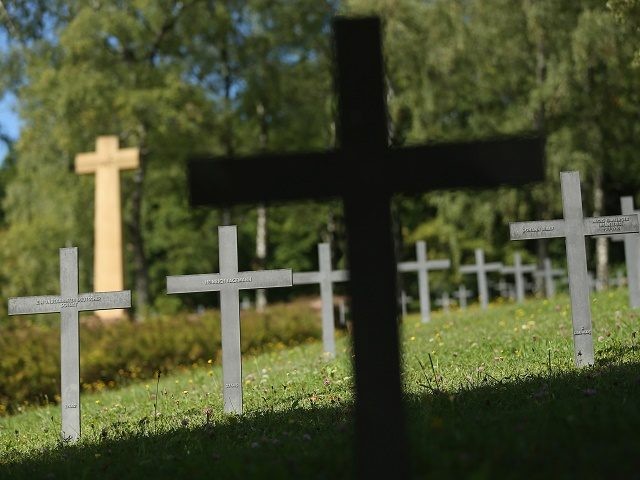The Vatican has published new guidelines regarding Catholic burial and cremation just in time for Halloween and the beginning of November—the “month of the dead.”
While expressing a preference for Christian burial, the new Instruction makes allowances for those who wish to be cremated, but specifies that their mortal remains cannot be scattered in the air or at sea, preserved in mementos, kept in the home or divided up among family members.
The norms issued by the Vatican’s Congregation for the Doctrine of the Faith are meant to uphold the importance of the body in Christian theology and to avoid “every appearance of pantheism, naturalism or nihilism” that can be associated with the scattering of ashes, the document states.
November is traditionally celebrated by Christians as the month of the dead, beginning with the back-to-back feasts of All Saints’ Day and All Souls’ Day, the latter being dedicated to praying for the souls of the departed. It also is the last month on the Christian calendar before beginning the new liturgical year on the first Sunday of Advent. Catholics in particular are encouraged to meditate during November on the “eternal truths,” namely death, judgment, heaven, hell and purgatory.
The modern feast of Halloween—“All Hallows’ Eve”—derives from the Christian commemoration of the evening before the Feast of All Saints, celebrated on November 1.
Because of their belief in the resurrection of the body, since the first century Christians have placed special value on respect for the body after death.
“In memory of the death, burial and resurrection of the Lord,” the Instruction states, “burial is above all the most fitting way to express faith and hope in the resurrection of the body.”
“By burying the bodies of the faithful, the Church confirms her faith in the resurrection of the body, and intends to show the great dignity of the human body as an integral part of the human person whose body forms part of their identity,” it says.
With regard to cremation, the text states that the Church has no doctrinal objections to the practice, “since cremation of the deceased’s body does not affect his or her soul, nor does it prevent God, in his omnipotence, from raising up the deceased body to new life.”
“The Church continues to prefer the practice of burying the bodies of the deceased,” however, “because this shows a greater esteem towards the deceased. Nevertheless, cremation is not prohibited, ‘unless it was chosen for reasons contrary to Christian doctrine,’” the text reads.
Moreover, when, “for legitimate motives,” cremation of the body has been chosen, “the ashes of the faithful must be laid to rest in a sacred place, that is, in a cemetery or, in certain cases, in a church or an area, which has been set aside for this purpose, and so dedicated by the competent ecclesial authority.”
Follow Thomas D. Williams on Twitter Follow @tdwilliamsrome

COMMENTS
Please let us know if you're having issues with commenting.